Asian Infrastructure Forum workshop 6 - Sustainable Energy for All (June 26, 1500-1630), Rooftop, Trident
Objectives
- Identify key challenges and opportunities to provide affordable, reliable and sustainable energy solutions in the Bank’s member countries.
- Discuss how the Bank can develop a robust project pipeline in a cost-effective manner at the current stage.
- Introduce the Bank’s energy sector operations to a broader audience and engage in dialogue with the clients, financing partners, stakeholders and observers (including NGOs).
- Gather infrastructure practitioners and experts in a practical and investment-driven discussion, focusing on matching innovative finance to the needed sustainable energy infrastructure.
Background and Discussion Items
Innovative and collaborative finance is the key. This can be seen on two dimensions: size and modality of financing. First, energy infrastructure in developing countries has suffered from chronic underinvestment for a long time. A McKinsey report estimated that US$93 trillion of investment in infrastructure are needed between 2016-2030, of which about 43% are in energy (McKinsey, 2016). Making the situation worse, energy investment has been unbalanced inside developing countries and across regions, and insufficient regional connectivity and collaboration has made it more difficult to close the development gaps between countries. Second, funds must be mobilized from both public and private sources, supported by a variety of instruments tuned for clean and climate-resilient energy technologies. Public sector institutions need to gear up for initial moves and create the needed impetus, while private sector investors should follow and take greater steps to fill in the financing gaps. This requires a strong and consistent policy support and coordinated action for cost-effective solutions.
Lack of financing is, however, not exclusively the issue, and financiers are largely responsive to the quality of the project pipeline. In many cases developing countries are incapable of translating their demands for energy infrastructure into “bankable projects”, and unable to attract equity investors and creditors. Some emerging countries have accumulated strong capacity and fresh experiences in developing energy infrastructure in the last two or three decades, and some proven practices might be useful and transferable to other places. AIIB as a multilateral financial institution is at a very good position to serve as a knowledge sharing platform.
Speakers
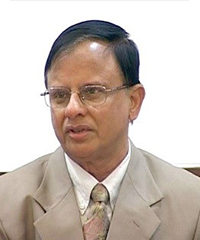
Dr. P. K. Mishra-Additional Principal Secretary, Office of the Prime Minister, India (Moderator)
Dr. P.K. Mishra has, as a former member of the Indian Administrative Service, varied work experience (holding senior positions) in field organizations as well as at the policy-making levels of the government. He was the former Chief of the Gujarat Electricity Regulatory Commission, Chairman of the Gujarat Electricity Board and have undertaken various Energy sector regulatory reform measures. He has a Ph.D in Economics/Development Studies from the University of Sussex, UK. He completed M.A. degree in Development Economics at the University of Sussex in 1990. He did his M.A. in Economics with a first class at the Delhi School of Economics in 1972.
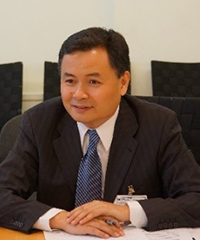
Mr. Jiao Xiaoping-Director General, China PPP Center
Mr. Jiao Xiaoping is a senior economist with a solid professional and educational background. He holds two Master’s Degrees, one in International Economy from Columbia University (US) and the other in Economics from Peking University (China). Since 1989, he has successively taken senior positions at the National Group Purchasing Power Control Office, Department of World Bank Affairs, and International Department and General Administration Office, Ministry of Finance, People’s Republic of China. Currently, he is the Director-General, China PPP Center (also China CDM Fund). He has translated and published several books, including How to Engage with the Public-Private Partnerships in Emerging Markets, Research of Value for Money of PPP Projects, Financial Commitment Management of PPP Projects, and Government Guarantees: Allocating and Valuing Risk in Privately Financed Infrastructure Projects.
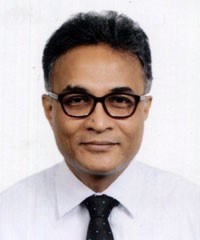
Dr. Ahmad Kaikaus-Secretary of Power Division, Ministry of Power, Energy and Mineral Resources, Bangladesh
Dr. Ahmad Kaikaus has a combination of civil service experience and high academic accomplishments with solid empirical research involvement. He received his Master of Arts degree in Development Economics from the Center for Development Economics, Williams College, Massachusetts, USA, and PhD in Public Policy and Political Economy from the University of Texas at Dallas, Texas, USA. His research focus covers interdisciplinary subjects such as governance, poverty, development, labor market, and migration. His civil service career provided him a unique opportunity to work in diverse places encompassing both rural and urban areas, regulatory and development agencies, and local government as well as ministerial positions. His academic and research background, on the other hand, made him well conversant of the development policy perspectives. Prior to joining the Power Division, Dr. Ahmad worked for 3 years as the Deputy Chief of Party of the Policy Research and Strategy Support Program (PRSSP) at the International Food Policy Research Institute, which was funded by the United States Agency for International Development (USAID).
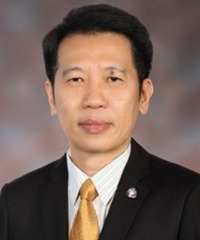
Mr. Suwat Kamolpanus - Chairman of the Renewable Energy Industry Club, Federation of Thai industries
Mr. Suwat Kamolpanus is an advisor for Mitr Phol Renewable Energy Business dealing extensively with all renewable sectors in Thailand, including biomass, biogas, co-generation, bio-fuel and solar business. With his 32 years work experience, he helped company develop new business units and brought advance technology to be applied in the business. He also held many top management positions in sugar, pulp and paper and energy industries. He is now Chairman of Renewable Energy Industry Club, The Federal of Thai Industries, the position that he can contribute and share his expertise constructing national policy for sustainable development of renewable energy for Thailand. He graduated from Chulalongkorn University in Electrical Engineering and got his master degree in Chemical Engineering from Miami University, USA.
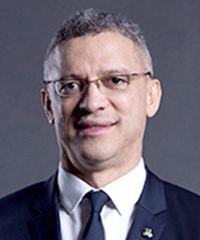
Mr. Leslie Maasdorp - Vice-President and CFO, New Development Bank
Over the past 25 years he has occupied senior leadership roles in both private and public sectors. Most recently he served as a Managing Director and President of Bank of America Merrill Lynch for Southern Africa for a period of four years. Prior to that he served in a dual role as Vice Chairman of Barclays Capital and Absa Capital. In 2002 he was the first African to be appointed as International Advisor to Goldman Sachs International. Before his 13 years as a global investment banker, he served in several senior leadership roles in the Government of South Africa. In 1994 after the transition to democracy, he was appointed as Special Advisor to the Minister of Labour and in 1999, in his role as Deputy Director General of the Department of Public Enterprises, he led the restructuring and privatization of state owned enterprises for the South African Government. He is a former Chairman and CEO of Advtech, a leading provider of private education in South Africa. Leslie is a young global leader of the World Economic Forum. He holds a BA degree in Economics and Psychology from the University of the Western Cape and a Master of Science degree in Economics from the School of Oriental and African Studies, at the University of London.
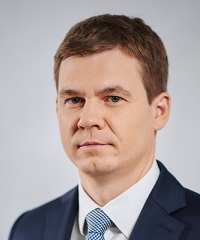
Mr. Marcin Piasecki - Vice-President, Investments, Polish Development Fund
Mr. Marcin Piasecki graduated from the ESCP Europe in Paris (Finance) and the Poznan University of Economics (Department of Business Administration), and completed the postgraduate INSEAD Executive Program and the General Electric Leadership Program. He has extensive international experience gained in leading financial and investment institutions. He started his career in investment banking with Citigroup, first in Paris, and then in London. He advised international customers on multi-billion projects using the project finance formula. As of September 2013, he joined was appointed as Investment Director at the Polish Development Fund (PDF). Since then, he has managed to enter into an investment agreement with Tauron Polska Energia, providing for the biggest PDF stake to date, of 750m PLN (Polish currency).
In cooperation with the Warsaw School of Economics, he conducts research in the field of economic growth mechanisms and publishes articles in the "International Journal of Management and Economics".
